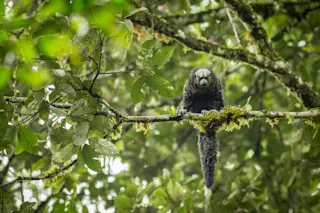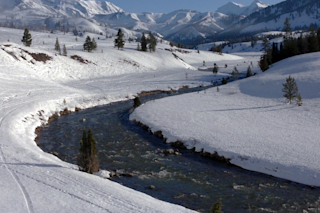Deforestation kills. Obviously the trees are gone right away, as well as chicks in nests, tree frogs or other wildlife that comes between falling trees and the ground. But what about the animals that survive the initial process of deforestation? Can losing forests cause secondary effects that aren’t immediately lethal for wildlife?
New research shows that deforestation can indeed cause problems through high levels of stress, which can lead to unsuccessful reproduction, unhealthy shifts in diet and other threatening outcomes.
“Changes in the habitat often times leads to behavioral, ecological and physiological changes and they are all usually related to each other,” says Sarah Boyle, a biologist at Rhodes College in Memphis, Tenn. “That’s then related to conservation outcomes in the future.”
Boyle has conducted a number of studies on the stress levels experienced by different wildlife species in deforested and relatively pristine areas in South America. As a graduate ...















